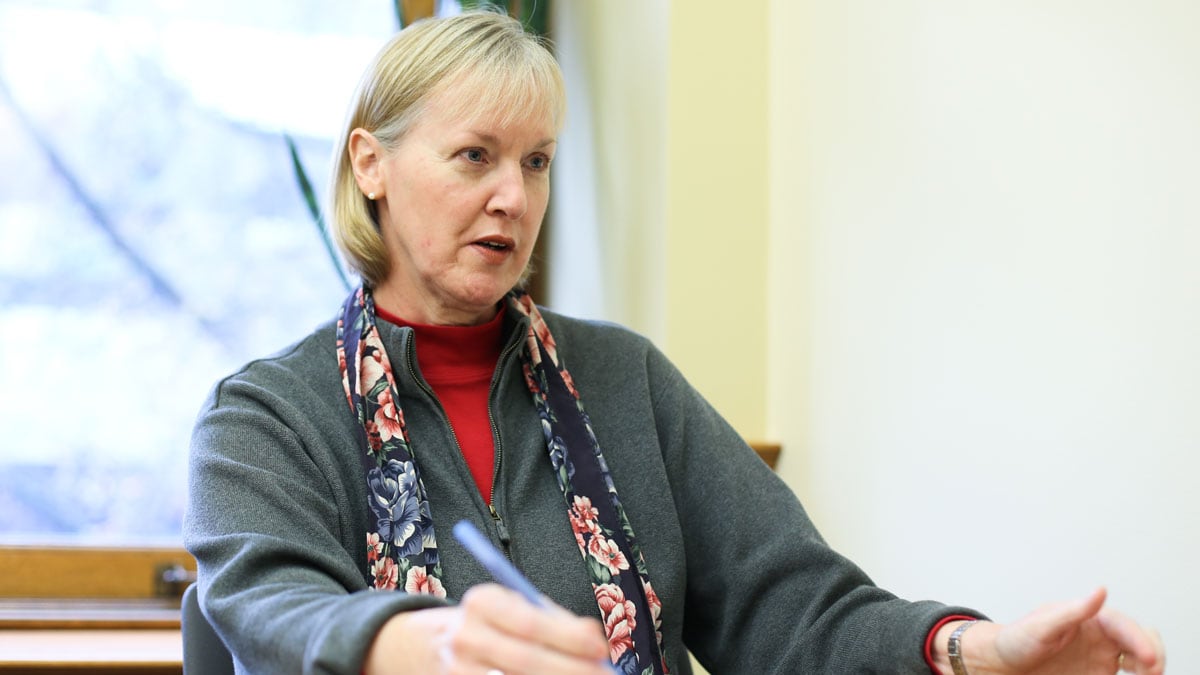The 349-page budget Mayor Ted Wheeler released yesterday included a dizzying number of facts and figures about how the city of Portland will operate next year.
One thing it didn't include: a resolution to a long-simmering disagreement between Wheeler and his council colleagues and City Auditor Mary Hull Caballero.
Although Hull Caballero is independently elected, the City Council controls her budget. At the same time, her job is to watchdog city bureaus, calling out mismanagement and poor use of taxpayer dollars. The council's control of Hull Caballero's wallet creates a natural tension with her duty to highlight the shortcomings of the bureaus that commissioners oversee. She has sought greater autonomy over the details of her budget, but the council has not granted that request.
For at least five years, Hull Caballero and the council have disagreed about the proper location of the city's hearings office, a quasi-judicial function that resolves disputes between Portlanders and city government over such issues as code violations, land use decisions and towed vehicles.
Since 1991, the hearings office has resided in the auditor's office as a convenience for the council. But the office, which includes two clerks and the equivalent of one-and-a-half full-time hearings officers, is not part of the duties assigned to the auditor by the city charter. Rather, it is there only "with the consent of the Auditor."
Hull Caballero has repeatedly asserted that the City Council does not adequately fund the hearings office, resulting in a diversion of money and personnel time from the duties assigned to her office by the city charter.
After years of back-and-forth with the council on funding for the hearings office, Hull Caballero last August notified the council in writing she was withdrawing her consent, effective June 30, 2020 (the end of the fiscal year), and asked the council to find a new home for the office.
That didn't happen.
As WW reported previously, as Wheeler finalized his budget April 29, the council wrote to Hull Caballero that it could not find the hearings office a new home. The effort was complicated by the fact that the office is supposed to be an impartial judge of disputes between citizens and city bureaus. If the office were to be housed in the City Attorney's Office, for instance, its impartiality might come into question.
In its April 29 letter to Hull Caballero, the council asked her to hold onto the office until a charter review commission can be empaneled later this year.
"It is clear to us that the most prudent course of action is to request that the Charter Review Commission take up the critical question and put a proposed solution up to a vote of Portlanders," the council wrote.
Hull Caballero responded in May, asking that the hearings office be moved to the city's Office of Management and Finance until the Charter Review Commission recommends a permanent home. "I will not reconsider my decision [to renounce responsibility for the hearings office]," she wrote.
But on May 7, when Wheeler released his budget, he kept the hearings office right where it has been for nearly 30 years.
Hull Caballero was not pleased.
"City Charter requires the consent of the Auditor before Council can assign duties to the Auditor's Office," she said in a statement. "Council has no such consent, and the mayor unlawfully put the hearings office back into the auditor's office budget. I am calling on all council members to remove the hearings office from my budget before they vote to approve the overall city budget."
City Commissioner Amanda Fritz says that's not going to happen.
Despite Hull Caballero objections, Fritz says, the best place for the hearings office remains the auditor's office.
"There is no council office or bureau that would not have a conflict of interest in having the hearings office in its portfolio," Fritz tells WW. "The only independent elected official is the city auditor, and it's unfortunate that she is unwilling to recognize the importance of the independence of the hearings office."
